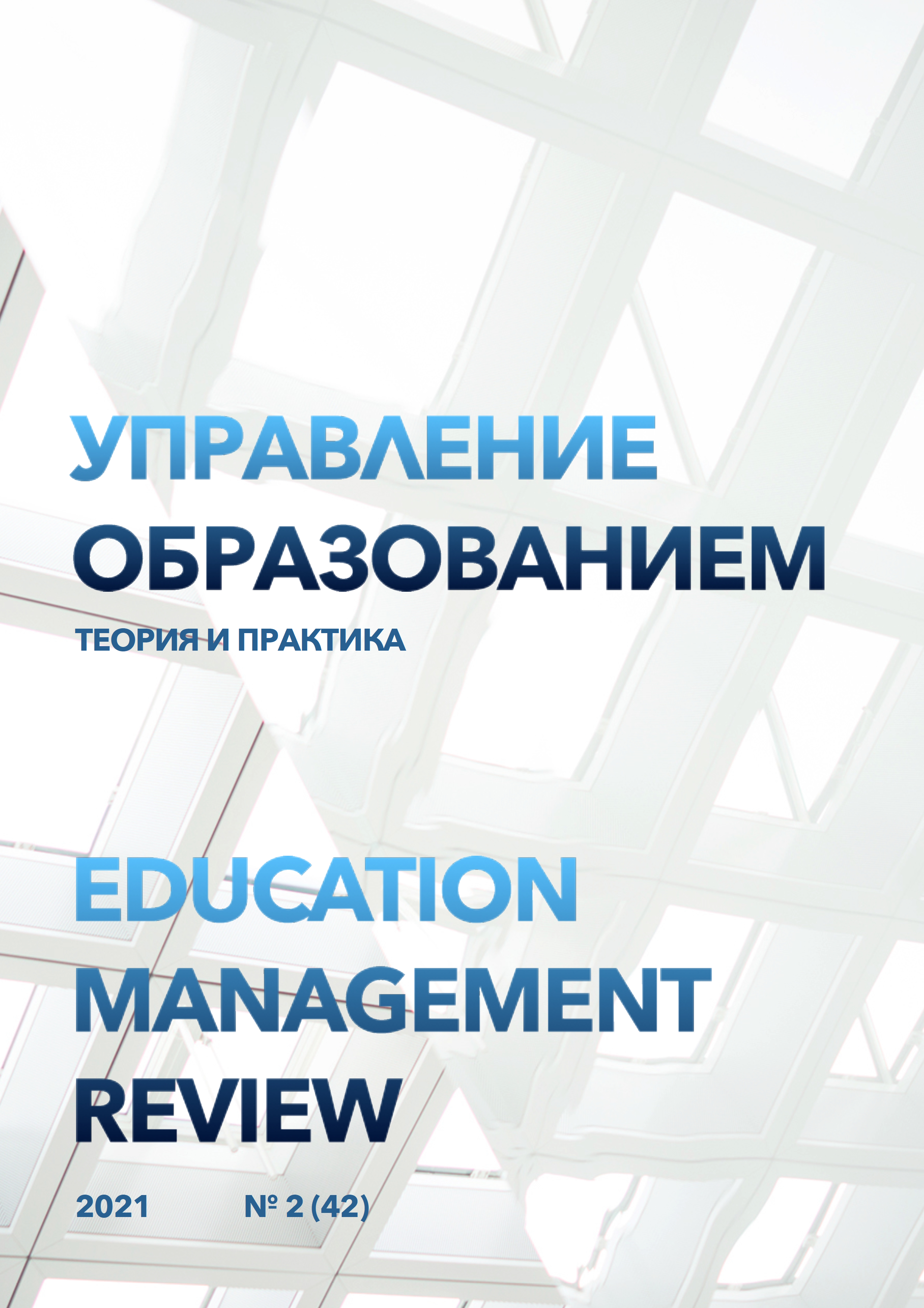Implementation of the concept of social mobility of future primary school teachers
DOI:
https://doi.org/10.25726/n3672-2920-4013-qKeywords:
Criteria, public administration, structure, mobility, primary school teacherAbstract
Students, as the basis for the future development of the state, form a special environment that socializes and compares the goals and objectives of the development of the state with their practical implementation. The desire to integrate into the international community, filling the curriculum with the problems of international relations reduce all the processes of teaching students to determine the criteria according to which the training can be considered completed. At the same time, the formation of the student should be based on the postulate that the student is a future specialist in a particular field. Accordingly, the relevance of the study is determined by the degree to which the student is prepared to realize himself as a specialist in the process of carrying out work. The novelty of the research is determined by the fact that the authors determine the teacher's readiness for social mobility as an indicator of the future specialist's readiness for professional activity. Such mobility is suggested to be based on a social understanding of the value of teaching. The authors evaluate the readiness according to the criteria parameters, which are determined in turn on the basis of the design of the educational environment. The practical significance of the study is determined by the formation of a model of social mobility of the future primary school teacher, which is based on the consideration of a set of social and economic conditions.
References
Асташова Н. А., Мельников С. Л., Камынин В. Л., Тонких А. П. Технологические ресурсы современного высшего образования // Образование и наука. 2020. Т. 22, №6. С. 74–101.
Буренкова Н.В., Данилова Т.В., Сидорина М.С., Тонких А.П., Худякова М.А. Инновационные технологии как фактор реализации компетентностного подхода в образовании. - Саратов: Ай Пи Ар Медиа, 2019.
Буренкова Н.В., Данилова Т.В., Тонких А.П. Инновационный подход к формированию модели современного учителя российской школы // Управление образованием: теория и практика. 2020. №4 (40). С. 29-36.
Исаченко Ю.С., Прядехо А.Н., Тонких А.П. Современные аспекты организации трудоустройства выпускников вуза // Управление образованием: теория и практика. 2020. №4 (40). С. 14-21.
Константинов С.А., Луговцева Б.Ч., Евдокимова Л.П. и др. Социальная и профессиональная мобильность на рынке труда. Методическое пособие. - Саратов: ПМУЦ, 2002. - 49 с. https://www.studmed.ru/konstantinov-s-a-lugovceva-b-ch-evdokimova-l-p-socialnaya-i-professionalnaya-mobilnost-na-rynke-truda_36033ee1cd4.html
Кураев И.Ю. Осмысление проблемы социальной мобильности в западной науке // Наука и современность. 2010. № 2- 3. С. 197 – 200.
Прядехо А.А., Исаченко Ю.С., Тонких А.П. Базовые понятия педагогической инноватики. В сборнике статей национальной научно-практической конференции с международным участием «Университет на пути к новому качеству науки и образования». Брянск: БГУ, 2020. С.156-163.
Сидоров С.В. Структура академической успешности // Сайт педагога-исследователя. http://si-sv.com/publ/2-1-0-211 (дата обращения: 12.03.2021).
Тонких А. П., Прядехо А.А. Использование информационных и коммуникационных технологий в процессе подготовки будущего учителя начальных классов // Современное педагогическое образование. 2019. № 3. С. 221-224.
Тонких А.П. Российские образовательные Интернет-ресурсы для учителей начальной школы //Начальная школа. 2007. №1. С. 117-124.
Урри Д. Мобильности. – М.: Праксис, 2012. – 576 с.
Урри Д. Социология за пределами обществ. Виды мобильности для XXI сто-летия. – М.: Высш. шк. экономики, 2012. – 336 с.
Alsina, N. (2014). International academic mobility in Chile. Global Opportunities and Challenges for Higher Education Leaders: Briefs on Key Themes. https://doi.org/10.1007/978-94-6209-863-3_50
Bamberger, A. (2019). Accumulating cosmopolitan and ethnic identity capital through international student mobility. Studies in Higher Education. https://doi.org/10.1080/03075079.2019.1597037
Cordes, S. A., Schwartz, A. E., & Stiefel, L. (2019). The Effect of Residential Mobility on Student Performance: Evidence From New York City. American Educational Research Journal, 56(4), 1380–1411. https://doi.org/10.3102/0002831218822828
Freedman, D., & Easley II, J. (2004). It’s my way or the highway: Academic success and social mobility in Dangerous Minds and Boston Public. Race Ethnicity and Education, 7(1), 73–83.
Glass, C. R., Streitwieser, B., & Gopal, A. (2019). Inequities of global mobility: socioeconomic stratification in the meanings of a university education for international students. Compare. https://doi.org/10.1080/03057925.2019.1590180
Kennedy, S., Knibutat, D. B., DelBasso, S. L., Bokhari, S. A. J., & Forman, H. P. (2010). The educational and career impact of using medical students for triaging off-hour diagnostic imaging requests at a major academic medical center. American Journal of Roentgenology, 194(4), 1027–1033. https://doi.org/10.2214/AJR.09.3221
Kondakci, Y., Bedenlier, S., & Zawacki-Richter, O. (2018). Social network analysis of international student mobility: uncovering the rise of regional hubs. Higher Education, 75(3), 517–535. https://doi.org/10.1007/s10734-017-0154-9
Mavroudi, E., & Warren, A. (2013). Highly skilled migration and the negotiation of immigration policy: Non-EEA postgraduate students and academic staff at English universities. Geoforum, 44, 261–270. https://doi.org/10.1016/j.geoforum.2012.08.008
Pherali, T. J. (2012). Academic Mobility, Language, and Cultural Capital: The Experience of Transnational Academics in British Higher Education Institutions. Journal of Studies in International Education, 16(4), 313–333. https://doi.org/10.1177/1028315311421842
Ploner, J. (2018). International students’ transitions to UK Higher Education – revisiting the concept and practice of academic hospitality. Journal of Research in International Education, 17(2), 164–178. https://doi.org/10.1177/1475240918786690




